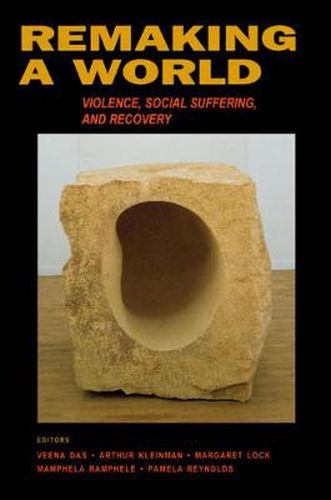Readings Newsletter
Become a Readings Member to make your shopping experience even easier.
Sign in or sign up for free!
You’re not far away from qualifying for FREE standard shipping within Australia
You’ve qualified for FREE standard shipping within Australia
The cart is loading…






Remaking a World completes a triptych of volumes on social suffering, violence, and recovery. Social Suffering, the first volume, deals with sources and major forms of social adversity, with an emphasis on political violence. The second, Violence and Subjectivity, contains graphic accounts of how collective experience of violence can alter individual subjectivity. This third volume explores the ways communities cope with-endure, work through, break apart under, transcend-traumatic and other more insidious forms of violence, addressing the effects of violence at the level of local worlds, interpersonal relations, and individual lives. The authors highlight the complex relationship between recognition of suffering in the public sphere and experienced suffering in people’s everyday lives. Rich in local detail, the book’s comparative ethnographies bring out both the recalcitrance of tragedy and the meaning of healing in attempts to remake the world.
$9.00 standard shipping within Australia
FREE standard shipping within Australia for orders over $100.00
Express & International shipping calculated at checkout
Remaking a World completes a triptych of volumes on social suffering, violence, and recovery. Social Suffering, the first volume, deals with sources and major forms of social adversity, with an emphasis on political violence. The second, Violence and Subjectivity, contains graphic accounts of how collective experience of violence can alter individual subjectivity. This third volume explores the ways communities cope with-endure, work through, break apart under, transcend-traumatic and other more insidious forms of violence, addressing the effects of violence at the level of local worlds, interpersonal relations, and individual lives. The authors highlight the complex relationship between recognition of suffering in the public sphere and experienced suffering in people’s everyday lives. Rich in local detail, the book’s comparative ethnographies bring out both the recalcitrance of tragedy and the meaning of healing in attempts to remake the world.